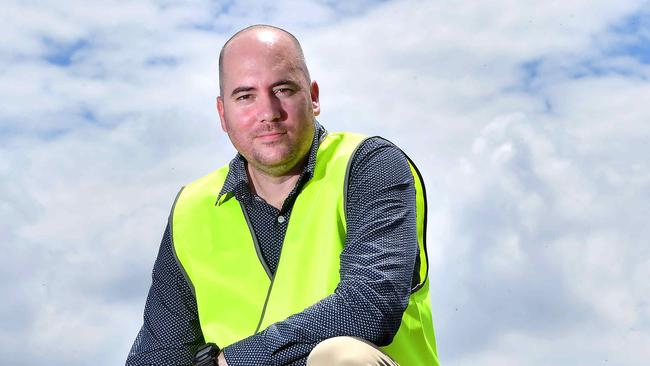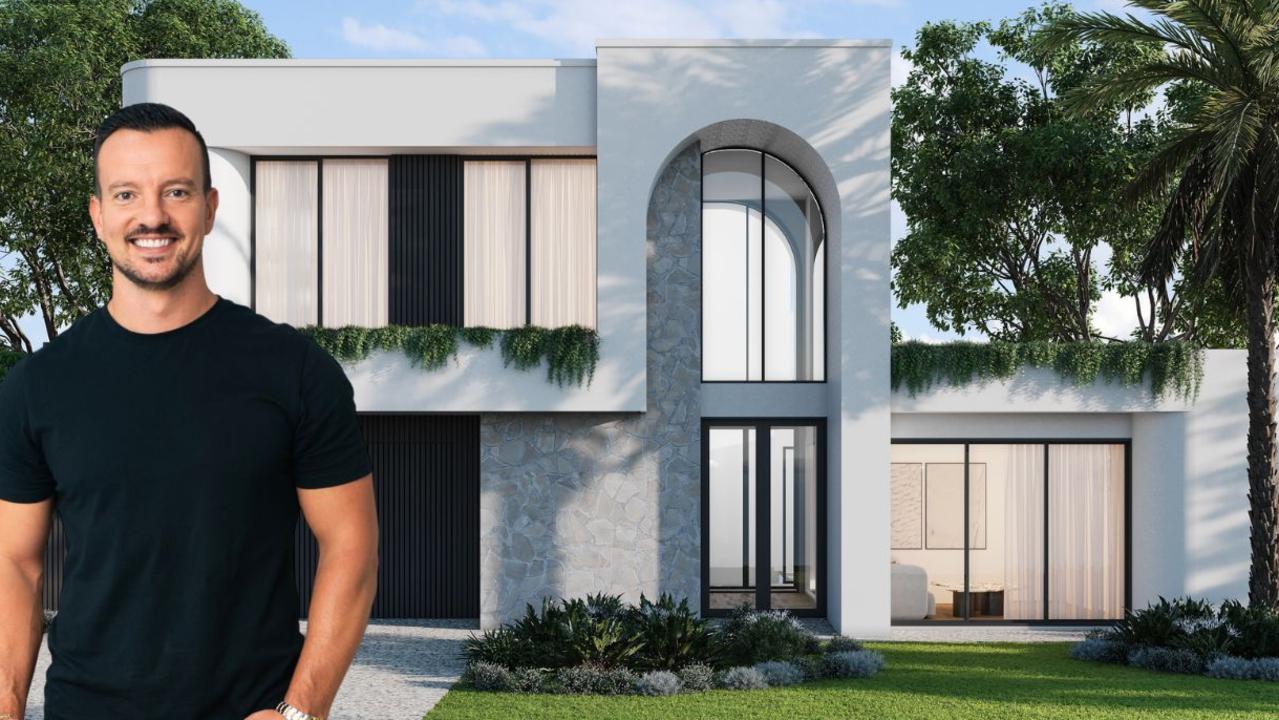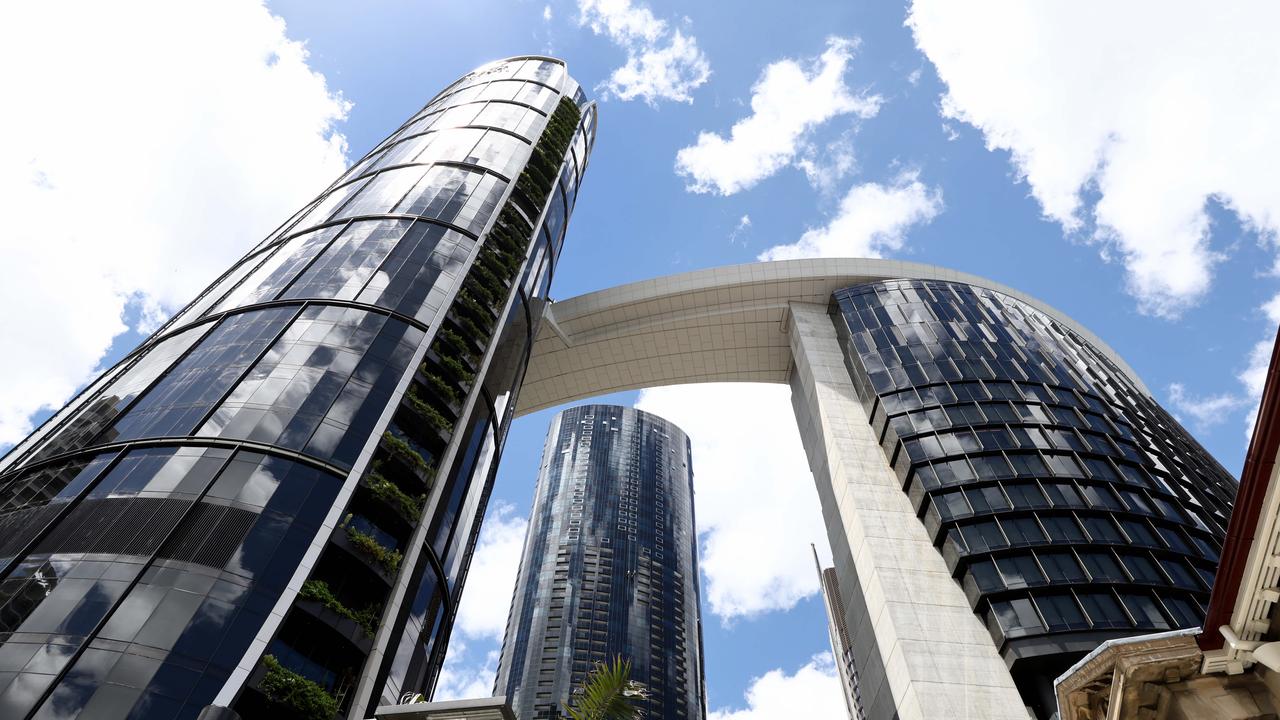The $2m business FinnBiogas built on chook poo
Brisbane mechanical engineer Jason Hawley has built a multi-million dollar global biogas business thanks in part to chook poo.

QBW
Don't miss out on the headlines from QBW. Followed categories will be added to My News.
Brisbane mechanical engineer Jason Hawley has built a multi-million dollar business thanks to chicken and pig poo.
The founder of FinnBiogas plans to double revenue over the next couple of years as the move to a zero emission economy fuels demand for energy plants using organic waste material.
Mr Hawley started FinnBiogas six years ago from his kitchen table with the company since completing 50 biogas plants across the world including for Shell and Fonterra.
Mr Hawley said he became fascinated with the process of creating energy from waste about eight years ago and realised its potential as companies moved to reduce their carbon footprint and cut energy costs. The company now has revenue in excess of $2m.
Biogas itself is gas mixture consisting of approximately 60 per cent methane, and the remainder containing carbon dioxide, hydrogen sulphide and moisture. It contains less methane than natural gas, which consists of approximately 96 per cent methane.
Biogas is naturally produced and released into the environment by the decomposition of organic matter such as fruit and vegetable waste, animal faeces and dead animals.
“We have worked across 10 countries including on industrial scale projects for piggeries, chicken farms, factories and municipal sewage plants,” said Mr Hawley.
He said that unlike other renewable energy sources, biogas can be produced 24-hours-a-day regardless of the weather or other environmental factors.
“We can work wherever the ancient process of bacteria breaking down organic matter occurs and creates a gas” he said “It is not reliant on the sun shining or the wind blowing.”
Mr Hawley said the move to a circular economy meant the focus was not only on reducing emissions but cutting the amount of waste going into landfill. In Australia, 20 percent of food waste goes to landfill with each person throwing away 300kg each year.
Methane, the main gas in biogas, is more than 20 time more destructive than C02. However the capture and combustion of biogas converts this methane to CO2, avoiding direct emissions caused by the natural breakdown of organic material. Mr Hawley said the use of biogas as a renewable energy source also avoids the consumption of conventional fossil fuels.
“It’s our mission to help create a cleaner future for the world,” said Mr Hawley.
“Don’t get us wrong, we’re not tree-hugging, pie-in-the-sky activists; we just believe that business, society and the environment can co-exist in a more harmonious way.”

One of the company’s biggest projects was a $60m bio energy plant operated by Shell near Portland, Oregon, using organic waste from the city’s kerbside collection including food scraps, vegetation and lawn clippings.
He said investment in biogas was being driven by the move by big companies to cut emissions as part of their corporate social responsibility (CSR).
“It is a small but growing part of the renewable energy mix,” Mr Hawley said. “We have to stop our addiction to coal.”
He said large manufacturers and agricultural firms were increasingly using biogas plants to reduce their energy costs.
On an industrial scale, the world has approximately 12,000 biogas plants, with Germany being the largest user with approximately 8,000. Australia has enormous potential for biogas, and there are currently over 50 large scale plants in operation around the country
“In the Philippines, we worked with a poultry farm on a biogas plant to fuel a boiler while in New Zealand we helped Fonterra with a dairy processing plant,” he said.
Mr Hawley said the company was now developing smaller-scale plants that could help local communities reduce emissions and waste.
FinnBiogas recently received a million dollar grant to develop a neighbourhood bio plant collecting waste from homes, shops and offices. The gas collected from the plant could be used to power electric vehicles while the remaining organic material could be turned into organic fertiliser. He said the company saw great potential to expand in South East Asia where there were many energy and waste challenges.
He said that up until now, the market for biogas operations in Australia has been quite limited. Unlike Europe, the Australian government does not currently offer direct subsidies for the construction of biogas plants, or feed-in tariffs from electricity produced by biogas. Like all investments, however, biogas plant assets can be built to be totally self-supporting.



